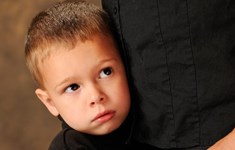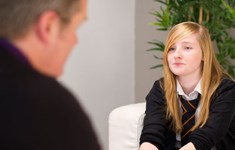Search Results

Tics And Twitches
There are a range of problems and types of problems that we see in children and young people. These difficulties can be grouped into problem types. The aim is to not repeat the existing MindEd content but rather to highlight what can be found and why it matters. Although this session does not cover every topic in detail, the material within these sessions is highly relevant to parents grappling with difficulties.

Bullying And What To Do As A Parent
This session suggests the ways that parents may recognise that their child is being bullied and provides some advice, with resources to take this further.

Young People And Criminal Justice
This session covers cautions and convictions, including how long these last and the time for which they have to be revealed (DSS check, future employment issues). It covers the various professionals that may be involved (solicitor, barrister, judge, probation officer, YOT etc.). It also includes advice on how a parent/carer may involve CJS with their child to avoid them getting to the point where they are involved in crime, and what to do if they get a 'knock on the door', particularly in the context of a child with mental health challenges.

Attachment
A relatively short session approaching attachment issues from a parent / carer’s perspective. This session provides initial guidance to a parent or carer who is told that their child, or the child they are looking after, has attachment problems or an attachment disorder. It then points them towards the Core Content session (Attachment and human development).

Support Available For Parents
This session introduces the range of behaviours to look for when parents wonder whether they should worry about their child's behaviour. It comes from the point of view of the parent who is wondering whether what they are trying to manage is different from other parents. It includes advice about comparing their child with other children of the same age etc. It also includes advice on when to be concerned about a child’s emotional state.

What Else?
This session introduces the range of behaviours to look for when parents wonder whether they should worry about their child's behaviour. It comes from the point of view of the parent who is wondering whether what they are trying to manage is different from other parents. It includes advice about comparing their child with other children of the same age etc. It also includes advice on when to be concerned about a child’s emotional state.

What Should I Do if I Am Concerned?
The initial focus of this session is on how being a good parent includes being able to recognise concerns and act on these concerns, combined with a statistic about the prevalence of child and adolescent mental health problems, to tackle stigma and normalise concerns. It then gives information about the importance of getting different perspectives from family/friends, teachers, SENCOs/ GP about your child in particular and also about how to talk to your child about your concerns.

Should I Be Concerned?
This session introduces the range of behaviours to look for when parents wonder whether they should worry about their child's behaviour. It comes from the point of view of the parent who is wondering whether what they are trying to manage is different from other parents. It includes advice about comparing their child with other children of the same age etc. It also includes advice on when to be concerned about a child’s emotional state.

Refusal To Go To School
This session covers school related anxiety and also talks about how to handle the child who, the parent discovers, is starting to truant.

Staying Calm In A Crisis
The session defines ‘a crisis’ and the different sorts of worrying behaviours that a parent or carer might face with their young person. It offers a step by step guide on ideas of how to cope with the immediate situation as safely and calmly as possible. It covers when to refer to other services and how to access resources as needed. The session touches on what behaviours to worry about and what might be ‘normal’ child and adolescent behaviours and offers links to topics in other related sessions.
